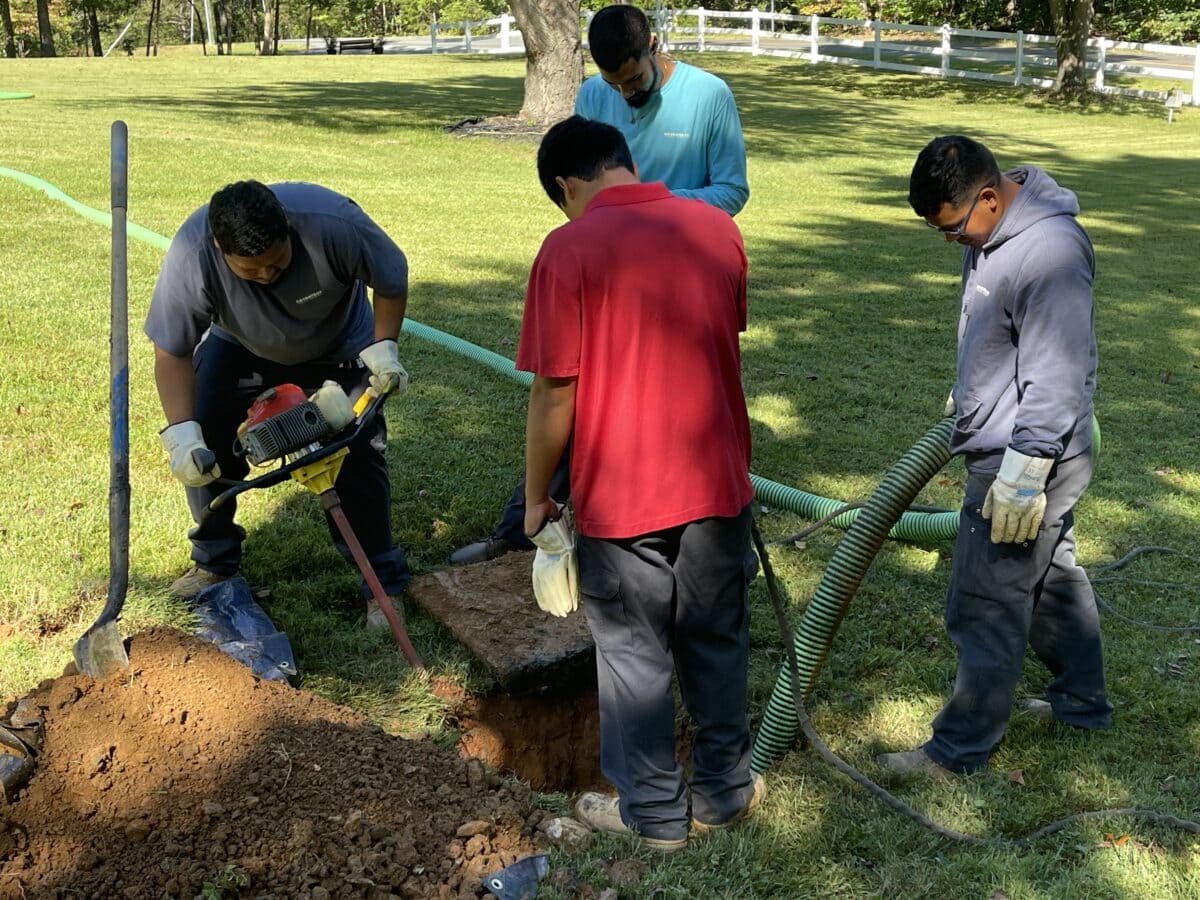
How to Fix a Septic System
First rule is don’t try to fix it yourself. A conventional or alternative septic system is essential to provide a safe and efficient way to dispose of household wastewater. However, when a septic system fails, it can cause significant problems, including unpleasant odors, slow drains, and even environmental contamination. Understanding how to fix a septic system, or more importantly, how to fix a failed septic system, is crucial for homeowners who rely on these systems.
Understanding Septic System Failures
Before diving into the details of fixing a septic system, it’s essential to understand what causes these failures. Common causes include:
1. Lack of Maintenance: Regular maintenance, such as pumping and inspections, is vital to keep a septic system functioning correctly. Without it, solids can build up in the tank and cause blockages and clogged dispersal lines.
2. Overloading the System: Excessive water, grease, food waste or other high strength waste usage can overload the septic system, leading to failures.
3. Tree Root Infiltration: Roots from nearby trees can invade the septic system, causing damage and blockages to distribution boxes, sewer lines and dispersal piping.
4. Damage to Components: Physical damage to the septic tank, pipes, or drain field can result in system failure.
Signs of a Failed Septic System
Identifying the signs of a failing septic system early can prevent more severe problems. Look out for the following indicators:
– Foul Odors: Unpleasant smells around your property, especially near the septic tank or drain field.
– Slow Drains: Drains that are slow to clear can indicate a blockage or other issues within the septic tank, sewer lines or hydraulic overload of the drainfied.
– Standing Water: Pooling dark smelly water in the yard, particularly near the drain field, is a sign of a failing system.
– Sewage Backups: Sewage backups in sinks, toilets, or showers are common indicators of pipe blockages or septic system failure.
Steps to Fix a Septic System
Fixing a septic system involves several critical steps, each requiring a licensed professional Here’s an overview:
1. Inspection and Diagnosis: The first step in fixing a septic system is to conduct a thorough inspection to diagnose the problem. Professionals will use specialized tools and cameras to inspect the tank, pipes, and drain field.
2. Pumping the Septic Tank: If the tank is full or blocked, it will need to be pumped out. This involves removing all the solids and liquids from the tank to reset the system. Regular pumping is crucial to prevent future issues.
3. Repairing or Replacing Damaged Components: Any damaged parts of the septic system, such as pipes, baffles, or the tank itself, will need to be repaired or replaced. Tree root infiltration may require removing roots and repairing any damage they have caused.
4. Restoring the Drain Field: The drain field is a critical component of the septic system, and if it becomes saturated or clogged, it can cause the entire system to fail. Professionals may need to rejuvenate the drain field by removing clogs or replacing pipes. Sometimes a new drainfield is the only option
5. Regular Maintenance and Monitoring: After the initial repairs, ongoing maintenance is essential to ensure the septic system continues to function correctly. Regular inspections, pumping, and monitoring can prevent future failures and extend the life of the system.
Why Hire a Professional
First, in Virginia it’s the law. Never attempt to fix a septic system without professional help. Not only do licensed professionals have the knowledge, experience and specialized tools to diagnose and fix septic system issues correctly but septic system repairs must comply with local regulations and codes. Additionally, septic systems produce hazardous gasses and infectious waste. Improper handling can pose health risks and gasses can cause death. Professional companies ensure all work meets these standards and are trained to manage risks safely.
By investing in professional services, homeowners can ensure their septic systems remain in good working order, protecting both their property and the environment. Advantage Septic Service offers comprehensive services to diagnose, repair, and maintain septic systems, ensuring they function efficiently and safely. With more than 15 licensed technicians and 25 years serving residents and businesses in Northern Virginia, we provide the most value and best customer service experience. For more information on maintaining your septic system and preventing future issues, visit our website or schedule service with us today.
